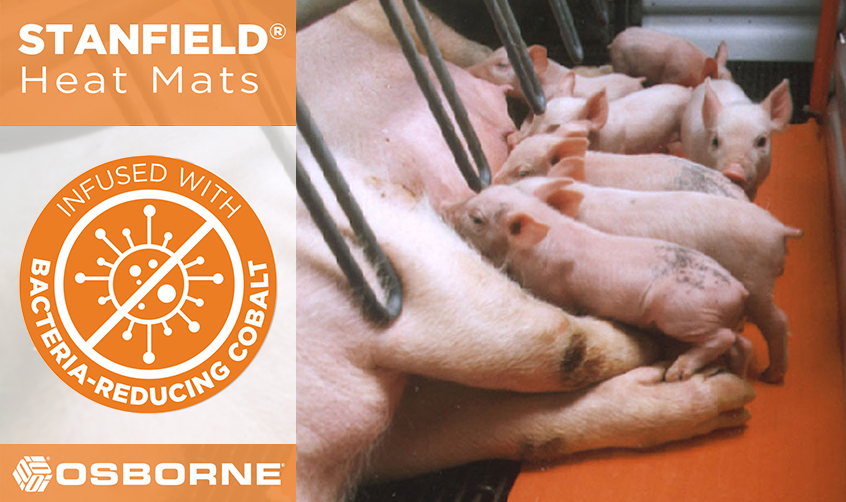



Study shows how environmental enrichment promotes improved piglet welfare
Recent study looks at how environmental enrichment can promote species-specific behaviors in pigs
Environmental enrichment is a means by which the pig’s housing can be manipulated to promote species-specific behaviors. This can include provision of bedding material such as straw or green fodder, shredded paper, or chewable materials such as natural rope, chains and specially designed toys. The effects of environmental enrichment on animal welfare can be evaluated through observing pig behavior. Environmental enrichment may also affect indicators of brain function and health. The aim of this research project was to determine the effect of environmental enrichment on piglet behavior and the expression of two genes in tissue collected from the cingulate cortex, a region of the brain associated with the experience of emotion.
A total of sixty-four (Large White x Landrace) x Hampshire 5-week old piglets were allocated to pens which were either barren (B) or environmentally enriched (EE) at the SRUC’s Easter Howgate Pig Unit. Each pen contained 8 piglets balanced for sex, with four replicate pens per treatment. EE pens (3.6 x 1.8m) contained straw and a thick plastic feed bag as enrichment, whereas the B pens (1.8 x 1.8m) contained no enrichment.
The study ran for 3 weeks. Half of the male piglets were culled at the end of the experimental period (n=8 per group) and brain tissue samples (dorsal anterior cingulate cortex) were collected. Behavioral analysis was performed on digitally recorded footage for one hour after replenishing enrichment material on the day of culling and one week earlier. Scan sampling was performed every 2 minutes and behaviors were recorded. Gene expression levels of Brain Derived Neurotrophic Factor (BDNF) and Interleukin-6 (IL-6) were determined using quantitative real time PCR (qPCR). BDNF is a protein found in the brain which protects neurons from stress induced damage and serves as an indicator of brain function. BDNF is reduced in periods of stress. IL-6 is indicative of a pro-inflammatory state and increased levels have been associated with increased anxiety and depression in humans.
Results showed that environmental enrichment had a significant effect on exploratory behavior (rooting, foraging), whilst piglets in barren environments performed more positive and negative social behaviors. Communal lying behavior, which was considered a positive social interaction, was the predominant contributor to positive social behavior in the barren pens. The author suggested that this difference was likely due to the lack of straw in the barren pens, resulting in piglets lying closer together to achieve thermal comfort. It may also be due to the smaller barren pen size. The smaller pen size may also have been a factor in the increased negative social interactions (body nosing, manipulation and aggression) seen in the barren pens. There was no difference in solitary play behavior between the groups. Furthermore, no difference in expression of either BDNF or IL-6 genes were observed. IL-6 was not detectable in several samples, suggesting low expression of this gene in this region of the brain particularly in those pigs in enriched environments.
This study was carried out by Amy Mcluckie, an Applied Animal Science undergraduate at SRUC and The University of Glasgow. Amy would like to thank her supervisors, Dr Sarah Hall and Dr Sarah Brown, for their support and encouragement. Both supervisors as well as Arianne Lowe were fantastic role models and Amy is proud to have been supported by such a great team of women scientists.
Take home message
Environmental enrichment may promote improved piglet welfare by allowing the expression of exploratory foraging and rooting behaviors whilst reducing negative social interactions between individuals. Environmental enrichment did not influence the expression of genes in the region of the brain associated with the experience of emotion in this study.
Katie has been a member of the BSAS Early Career Council since 2015. She is interested in the effect of nutritional and management interventions on the gut microbiome and gut health of pigs within sustainable systems.








